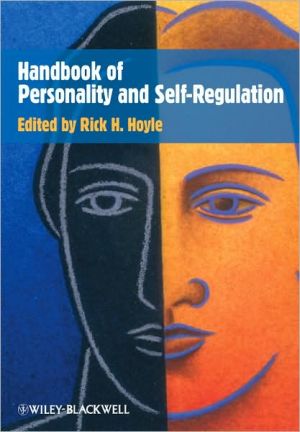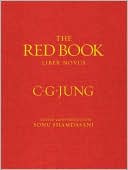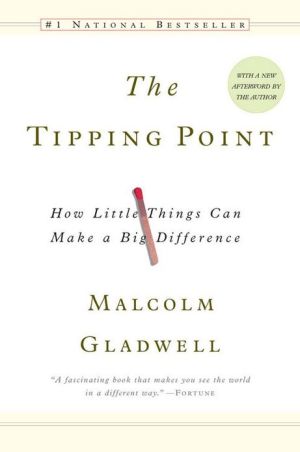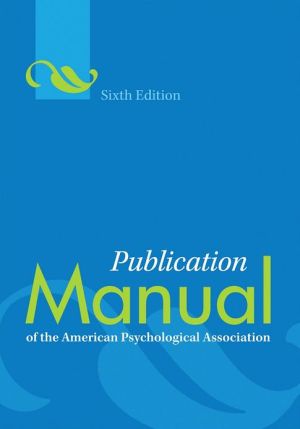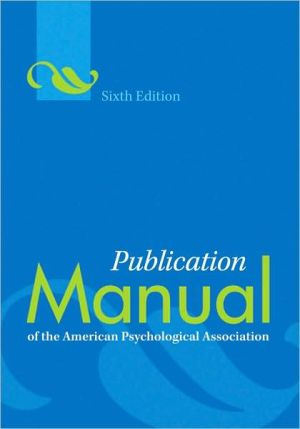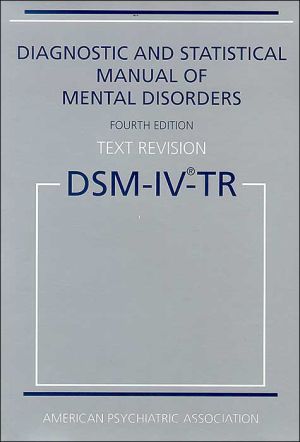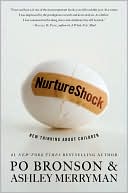Handbook of Personality and Self-Regulation
The Handbook of Personality and Self-Regulation integrates scholarly research on self-regulation in the personality, developmental, and social psychology traditions for a broad audience of social and behavioral scientists interested in the processes by which people control, or fail to control, their own behavior.\ \ Examines self-regulation as it influences and is influenced by basic personality processes in normal adults\ Offers 21 original contributions from an internationally respected...
Search in google:
The term self-regulation refers to processes by which people control their thoughts, feelings, and behaviors. When people succeed at self-regulation, they effectively manage their perceptions of themselves and their social surroundings. They behave in ways that are consistent with their goals and standards of behavior. Conversely, when people struggle or fail at self-regulation, they lose control of their personal and social experience. Their behavior does not contribute to the fulfillment of important goals or correspond to standards of behavior to which they subscribe. Successful self-regulation is essential to adaptive functioning in all life domains.Given the central role of self-regulation in adaptive and maladaptive functioning, it is not surprising that a large literature has developed on the topic. This literature is unusual in its breadth, spanning biological, developmental, cognitive, and social psychology, and drawing attention from researchers in related disciplines such as sociology and education. Despite the current vitality of this literature, there has been relatively little study of self-regulation as a feature of personality or how personality is reflected in self-regulation.The primary aim of the proposed volume is to integrate scholarly research on self-regulation in the personality, developmental, and social psychology traditions for a broad audience of social and behavioral scientists interested in the processes by which people control, or fail to control, their own behavior. The volume would include original, integrative, research-based contributions by leading scholars. The resultant book would bridge a conspicuous gap in the burgeoning literature on self-regulation and serve as an important resource for scholars, students, and practitioners in the social and behavioral sciences.
About the Editor. List of Contributors. Preface. 1. Personality and Self-Regulation (Rick H. Hoyle, Duke University). I: TEMPERAMENT AND EARLY PERSONALITY. 2. Relations of Self-Regulatory/Control Capacities to Maladjustment, Social Competence, and Emotionality (Nancy Eisenberg, Arizona State University, Natalie D. Eggum, Arizona State University, Julie Vaughan,Arizona State University, and Alison Edwards, Arizona State University ). 3. Delay of Gratification: A Review of Fifty Years of Regulation Research (Renée M. Tobin, Illinois State University and William G. Graziano, Purdue University ). 4. Self-Regulation as the Interface of Emotional and Cognitive Development: Implications for Education and Academic Achievement (Clancy Blair, New York University, Susan Calkins, University of North Carolina at Greensboro and Lisa Kopp Pennsylvania State University ). 5. Exploring Response-Monitoring: Developmental Differences and Contributions to Self-Regulation (Jennifer M. McDermott, University of Maryland and Nathan A. Fox, University of Maryland ). II: PERSONALITY PROCESSES. 6. Signatures and Self-Regulation Processing: Dynamics of the Self-System (Carolyn C. Morf, University of Bern and Stephan Horvath, University of Bern ). 7. Self-Regulation and the Five-Factor Model of Personality Traits (Robert R. McCrae, Baltimore and Corinna E. Löckenhoff, Cornell University). 8. Self-Determination Theory and the Relation of Autonomy to Self-Regulatory Processes and Personality Development (Christopher P. Niemiec,University of Rochester, Richard M. Ryan, University of Rochester and Edward L. Deci, University of Rochester ). 9. Interest and Self-Regulation: Understanding Individual Variability in Choices, Efforts and Persistence Over Time (Carol Sansone, University of Utah, Dustin B. Thoman, University of Utah and Jessi L. Smith, Montana State University ). 10. Goal Systems and Self-Regulation: An Individual Differences Perspective (Paul Karoly, Arizona State University ). 11. Acting on Limited Resources: The Interactive Effects of Self-Regulatory Depletion and Individual Differences (C. Nathan DeWall, University of Kentucky, Roy F. Baumeister, Florida State University, David R. Schurtz, University of Kentucky and Matthew T. Gailliot, University of Amsterdam ). III: INDIVIDUAL DIFFERENCES. 12. Working Memory Capacity and Self-Regulation (Malgorzata Ilkowska, Georgia Institute of Technolog and Randall W. Engle, Georgia Institute of Technolog ). 13. Regulatory Focus in a Demanding World (Abigail A. Scholer, Columbia University and E. Tory Higgins, Columbia University ). 14. Self-Efficacy (James E. Maddux, George Mason University and Jeffrey Volkmann, George Mason University ). 15. Dealing with High Demands: The Role of Action versus State Orientation (Nils B. Jostmann, Vrije Universiteit Amsterdam and Sander L. Koole, Vrije Universiteit Amsterdam ). 16. The Cybernetic Process Model of Self-Control: Situation- and Person-Specific Considerations (Eran Magen, University of Pennsylvania and James J. Gross, Stanford University ). 17. Modes of Self-Regulation: Assessment and Locomotion as Independent Determinants in Goal-Pursuit (Arie W. Kruglanski, University of Maryland, Edward Orehek, University of Maryland, Tory Higgins, Columbia University, Antonio Pierro, University of Rome “La Sapienza” and Idit Shalev, University of Florida ). 18. The Costly Pursuit of Self-Esteem: Implications for Self-Regulation (Jennifer Crocker, University of Michigan, Scott Moeller, University of Michigan and Aleah Burson, University of Michigan ). 19. Self-Regulation of State Self-Esteem Following Threat: Moderation by Trait Self-Esteem (Michelle R. vanDellen, University of Georgia, Erin K. Bradfield, Duke University and Rick H. Hoyle, Duke University). 20. Individual Differences in Approach and Avoidance: Behavioral Activation/Inhibition and Regulatory Focus as Distinct Levels of Analysis (Timothy J. Strauman, Duke University and Wilkie A. Wilson, Duke University). 21. Hypo-egoic Self-Regulation (Mark R. Leary, Duke University, Claire E. Adams, Louisiana State University and Eleanor B. Tate, Duke University ). Index.
\ From the Publisher"This handbook serves as a significant tool for those seeking to understand the complexities of self-regulation. Hoyle (Duke Univ.) has brought together an impressive contingent of authors and developed a work that balances theoretical foundations and practical applications. The contributors do a masterful job of integrating what have often seemed disparate findings in the self-regulation literature...Those working with individuals who have self-regulatory issues are likely to find this volume particularly useful. Summing Up: Highly recommended." (Choice, 1 May 2011)\ \ \
